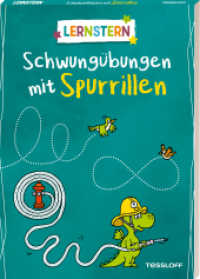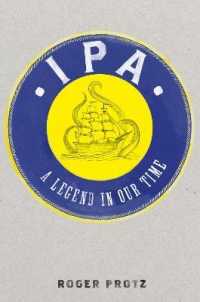- ホーム
- > 洋書
- > 英文書
- > Politics / International Relations
Full Description
In 1996, the Guatemalan civil war ended with the signing of the Peace Accords, facilitated by the United Nations and promoted as a beacon of hope for a country with a history of conflict. Twenty years later, the new era of political protest in Guatemala is highly complex and contradictory: the persistence of colonialism, fraught indigenous-settler relations, political exclusion, corruption, criminal impunity, gendered violence, judicial procedures conducted under threat, entrenched inequality, as well as economic fragility. Human and Environmental Justice in Guatemala examines the complexities of the quest for justice in Guatemala, and the realities of both new forms of resistance and long-standing obstacles to the rule of law in the human and environmental realms. Written by prominent scholars and activists, this book explores high-profile trials, the activities of foreign mining companies, attempts to prosecute war crimes, and cultural responses to injustice in literature, feminist performance art and the media. The challenges to human and environmental capacities for justice are constrained, or facilitated, by factors that shape culture, politics, society, and the economy. The contributors to this volume include Guatemalans such as the human rights activist Helen Mack Chang, the environmental journalist Magal? Rey Rosa, former Guatemalan Attorney General Claudia Paz y Paz, as well as widely published Guatemala scholars.
Contents
Part OneChapter One: Introduction. Transitional, Transnational, and Distributive Justice in GuatemalaCandace Johnson (University of Guelph)Chapter Two: Memory-Truth-Justice: The Crisis of the Living in the Search for Guatemala's Dead and DisappearedCatherine Nolin (University of Northern British Columbia)Chapter Three: Transnational and Local Solidarities in the Struggle for Justice: Choc versus PadillaKalowatie Deonandan (University of Saskatchewan) and Rebecca Tatham (University of Saskatchewan)Part Two: Justice in PracticeChapter Four :A Diary of Canadian Mining in Guatemala, 2004-2013Magali Rey Rosa (Savia: School of Ecological Thought)Chapter Five: Impunity in Guatemala: A Never-Ending BattleHelen Mack Chang (The Myrna Mack Foundation)Chapter Six: Politics, Institutions, and the Prospects for Justice in GuatemalaClaudia Paz y Paz (Organization of American States)Part Three: Cultural Responses to InjusticeChapter Seven: Scars that Run Deep: Performing Violence and Memory in the Work of Regina Jose Galindo and Rosa ChavezRita M. Palacios (Concordia University)Chapter Eight: Human and Environmental Justice in the Work of Rodrigo Rey RosaStephen Henighan (University of Guelph)Chapter Nine: Press Clippings: The Daily News in GuatemalaW. George Lovell (Queen's University)Chapter Ten: ConclusionStephen Henighan (University of Guelph) and Candace Johnson (University of Guelph)








